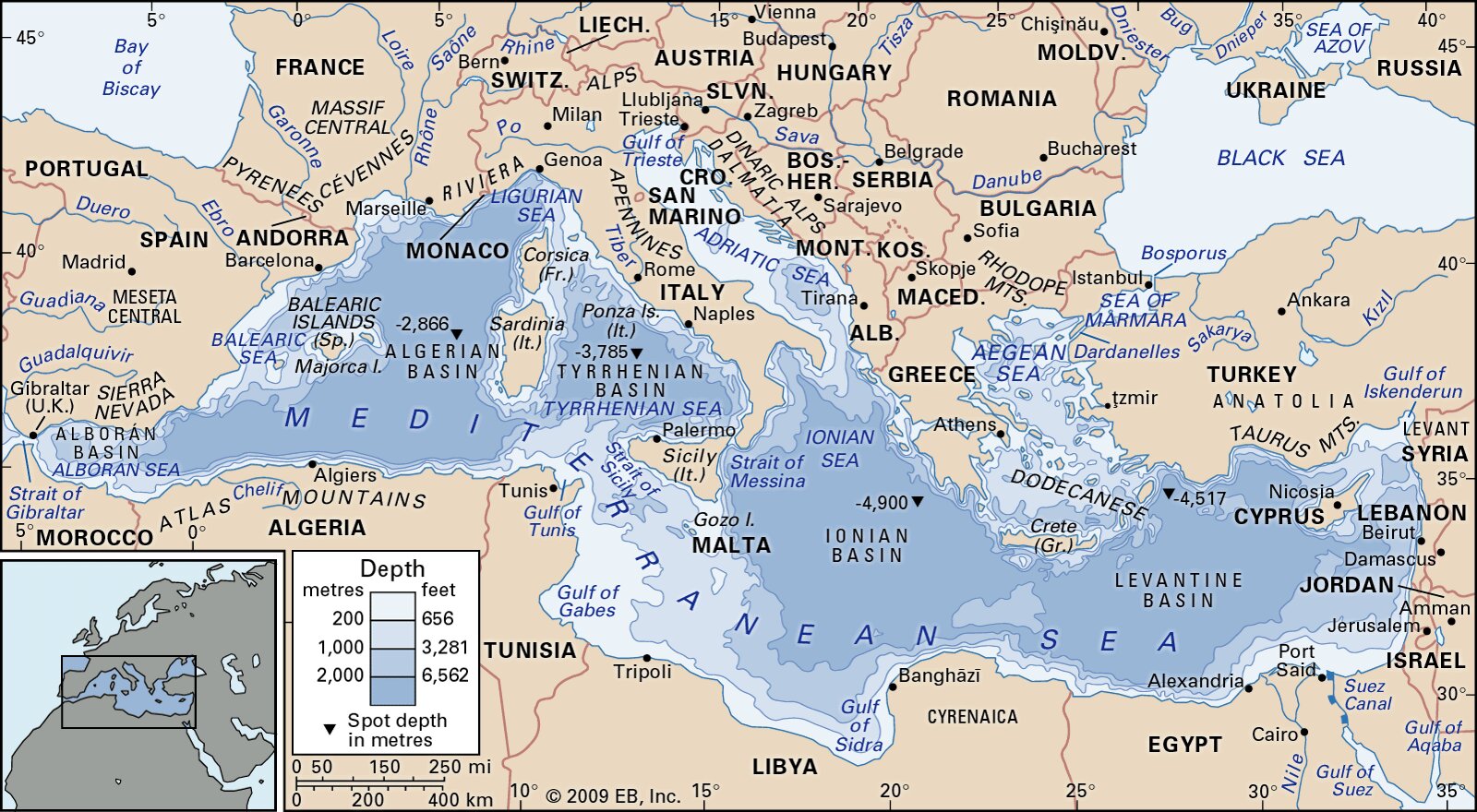Turkey-Greece Stand-off | 20 Aug 2020
Why in News
Recently, France has deployed its military in the eastern Mediterranean Sea amid tensions between Greece and Turkey over recently-discovered gas reserves.
- According to France the military has been deployed to strengthen the autonomous assessment of the situation and to affirm France’s commitment to free movement, to the security of maritime navigation in the Mediterranean and respect for international law.
Key Points
- The Stand-off:
- Reason: The European Union (EU) and its allies in West Asia and North Africa made plans to build a gas pipeline from the Mediterranean to Europe’s mainland to transport the gas. However, they have kept Turkey out of it, which has infuriated Turkey.
- The gas transport would help reduce the EU's dependency on Russia.
- Earlier in 2019, the EastMed Gas Forum was formed by Cyprus, Egypt, Greece, Israel, Italy, Jordan and Palestine, and Turkey was again excluded.
- Turkey’s Counter: Turkey challenged the EU pipeline project and reached an agreement with Libya to form an Exclusive Economic Zone (EEZ) from its southern shores to Libya’s northern coast across the Mediterranean.
- However, Greece claimed the Turkish zone violated its maritime sovereignty and later announced its EEZ with Egypt, which clashed with Turkey’s zone.
- Reacting to the deal, Turkey sent its survey ship near the island of Kastellorizo area mentioned in the Greece-Egypt agreement.
- This is not the first time Greece and Turkey have been at odds. Over the past four decades, the countries have gone to war at least three times.
- Reason: The European Union (EU) and its allies in West Asia and North Africa made plans to build a gas pipeline from the Mediterranean to Europe’s mainland to transport the gas. However, they have kept Turkey out of it, which has infuriated Turkey.
- Issues Involved:
- Overlapping Claims: Turkey and Greece, vehemently disagree over overlapping claims to hydrocarbon resources in the region based on conflicting views on the extent of their continental shelves in waters dotted with mostly Greek islands.
- Turkey says that despite having the longest coastline in the eastern Mediterranean it is confined into a narrow strip of waters due to the extension of Greece's continental shelf, based on the presence of many Greek islands near its shore.
- The island of Kastellorizo, which is about 2 km off Turkey's southern coast and 570 km from the Greek mainland, is a particular source of Turkish frustration.
- Involvement of Many Countries: The highly complicated issue now has the potential to involve Europe, West Asia and North Africa.
- France, the EU’s most powerful military force, has thrown its weight behind Greece and Cyprus.
- Cyprus is physically divided with the southern part ruled by the internationally-recognised government and the northern part controlled by Turkey.
- An alliance is also emerging among Greece, Cyprus, Italy and France, which is backed by Egypt, Israel and the UAE.
- Turkey stands almost isolated, but remains a key power in the Mediterranean.
- France, the EU’s most powerful military force, has thrown its weight behind Greece and Cyprus.
- Overlapping Claims: Turkey and Greece, vehemently disagree over overlapping claims to hydrocarbon resources in the region based on conflicting views on the extent of their continental shelves in waters dotted with mostly Greek islands.
Way Forward
- If the EU wants to transport gas from the coast of Israel to Europe via Cyprus and Italy, an open conflict with Turkey cannot help. What is in everybody’s interest is to bring down tensions and find a diplomatic and mutually acceptable solution to the gas conflict.
- Excluding Turkey, which has a long Mediterranean coast, is unwise. Allowing a resurgent Turkey to bully smaller powers in the region would be strategically disastrous. The EU has to strike a balance between these two options.

